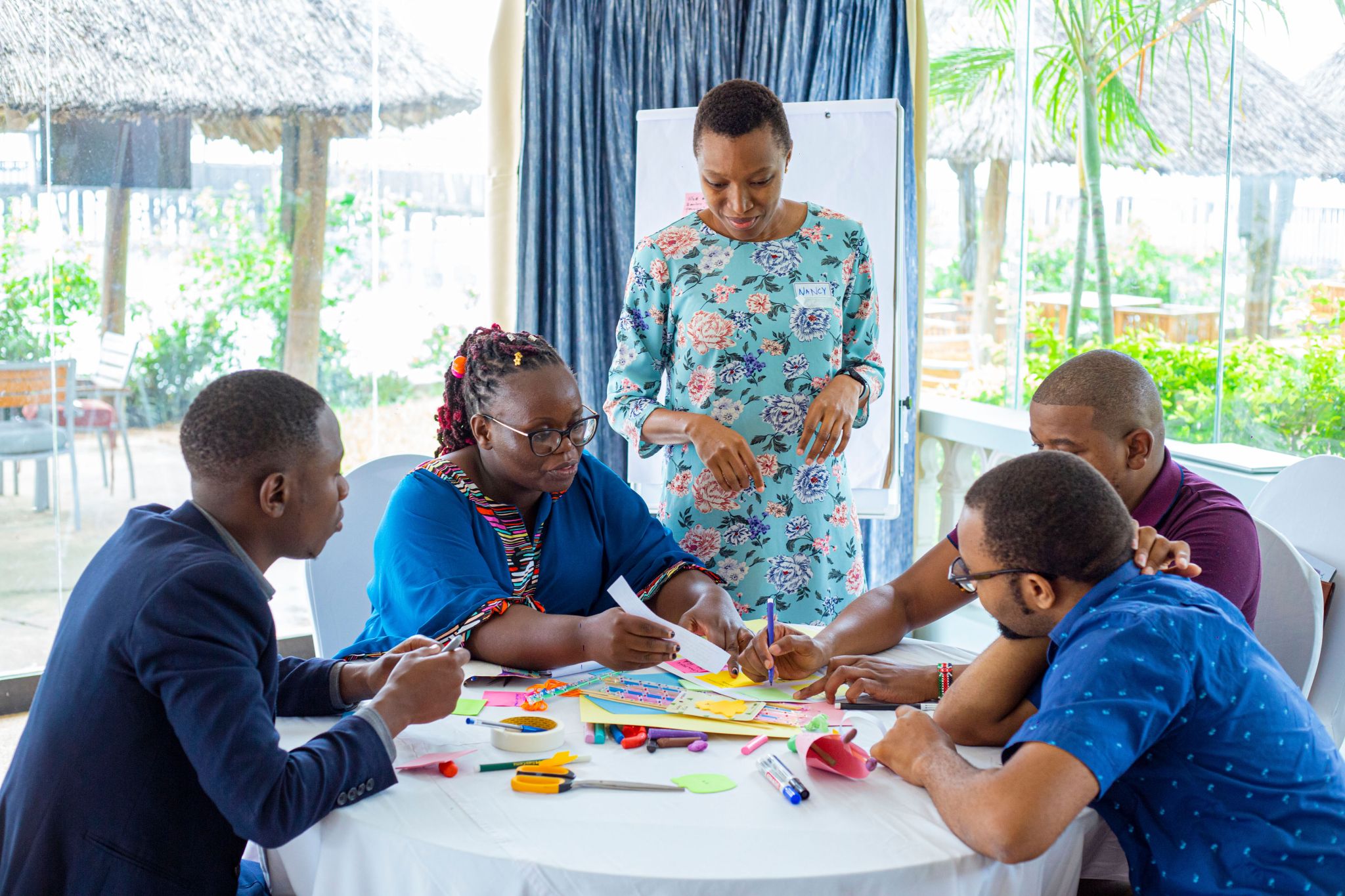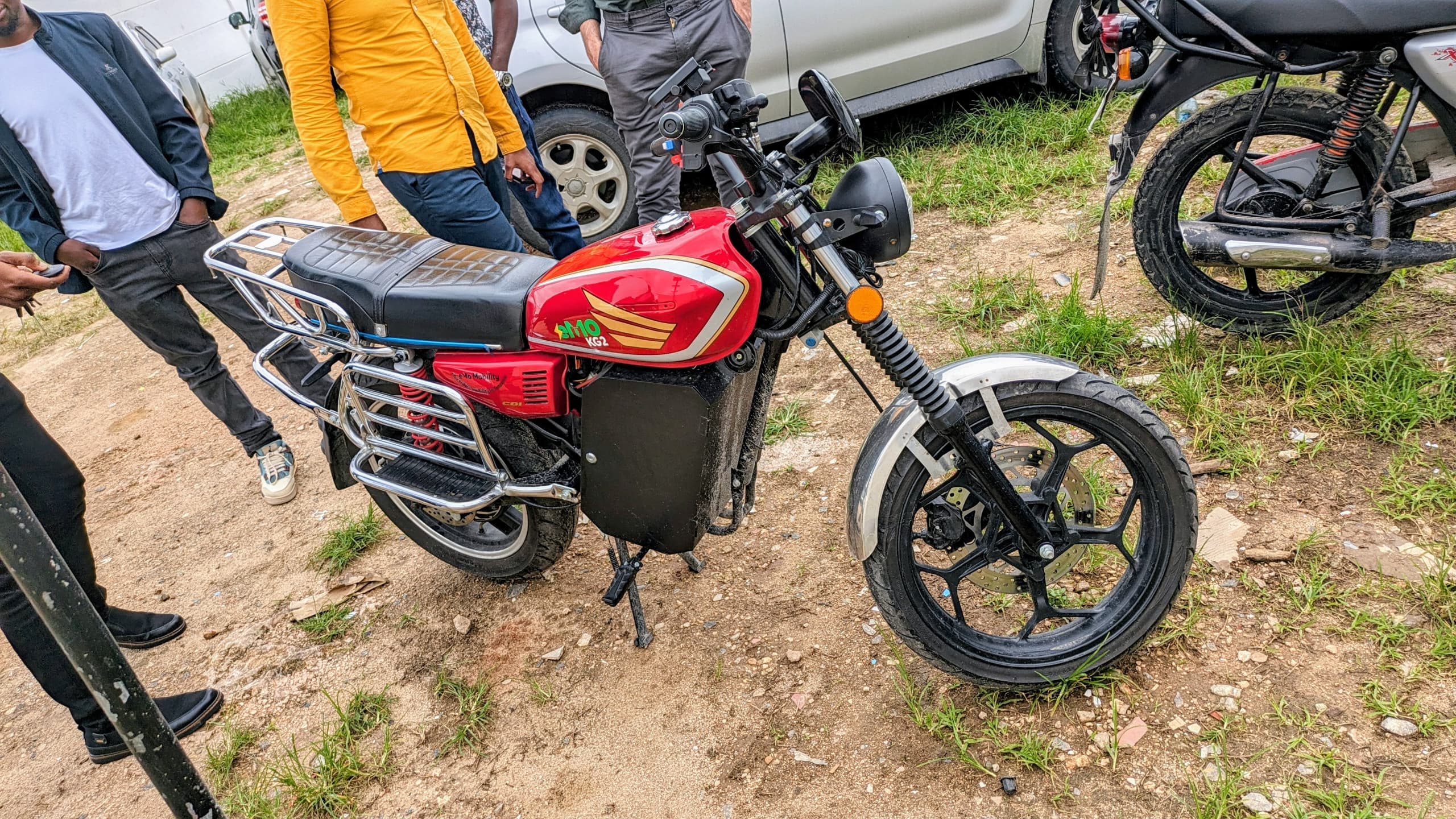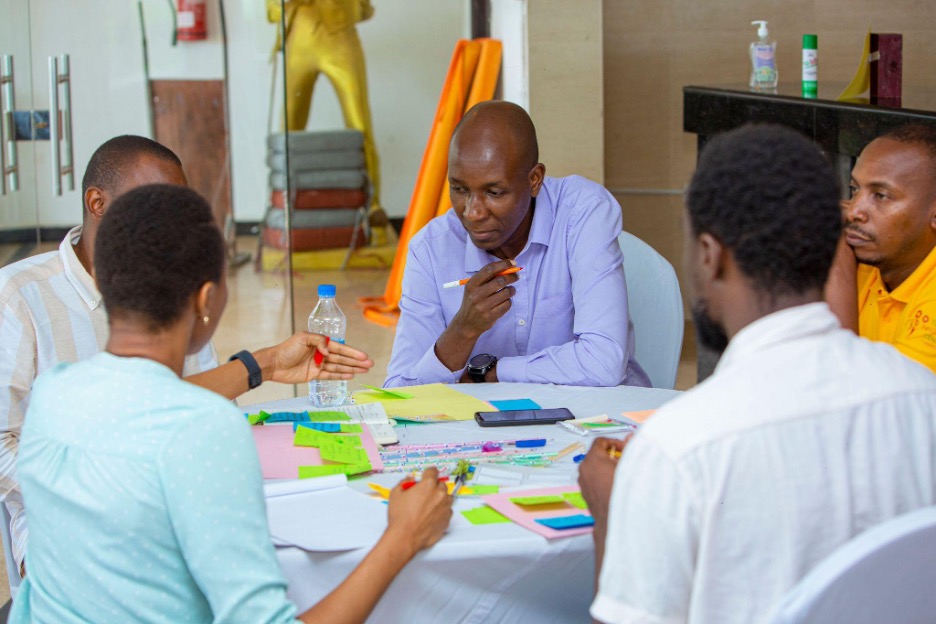Context
My role as a Human-Centered Design (HCD) Facilitator during the Siemens Stiftung e-mobility training program, organised by Mideva Labs which took place in Dar es salaam, Tanzania with participants from Kenya, Uganda, and Tanzania.
This immersive 3-day workshop was designed to equip professionals and entrepreneurs in the e-mobility sector with HCD principles and methodologies for impact-focused product development and market research.

My Role & Core Skills
As an HCD Facilitator, my responsibilities encompassed guiding diverse groups of participants through the iterative HCD process. This project specifically showcased my expertise in:
- Human-Centered Design (HCD) Facilitation: Guiding multi-national teams through problem definition, user research synthesis, ideation, and solution development.
- Prototyping & Testing: Instructing and facilitating the rapid creation of tangible representations of ideas, enabling early validation and feedback.
- Workshop Facilitation: Structuring and leading engaging sessions, managing group dynamics, and ensuring productive outcomes within a time-bound workshop environment.
Driving Electric Vehicle Uptake (The Challenge)
I had the privilege of working closely with one dedicated group of participants on a specific, pressing challenge within the e-mobility sector: “How Might We drive uptake and adoption of electric vehicles among potential users?” This challenge required a deep dive into user behaviors, perceptions, and barriers related to EV adoption in developing economies.

Human-Centered Design (HCD) Facilitation & Field Research
My role began by guiding the group in framing their research questions and preparing for direct engagement with potential EV users. I facilitated sessions that emphasized:
- Data Synthesis: Leading the group through affinity mapping and other synthesis techniques to identify key themes, user archetypes, and core insights from their field research. This process was crucial in moving from raw data to actionable user needs.
- Empathy Building: Encouraging participants to truly understand the lives, daily commutes, financial considerations, and environmental awareness of their target users.
- Research Design: Providing frameworks for conducting qualitative field research, including interview techniques and observation methods, to uncover unarticulated needs and pain points.
Prototyping
Following the research synthesis, my sessions shifted to the ideation and prototyping phases. I facilitated exercises that encouraged divergent thinking and then converged on promising concepts. A key focus was on generating ideas to gain buy-in from a specific user archetype: the “boss” who possessed the financial capacity to bear the risk of acquiring EVs.
Participants utilized the Crazy 8s method to rapidly generate diverse ideas addressing the identified gaps and opportunities from their research insights. The team explored a range of concepts, including:
- Providing financial incentives to make EV acquisition more appealing.
- Investing in maintenance services and the reliable supply of spare parts for EVs to alleviate concerns about upkeep.
- Creating broad awareness campaigns targeting not only bosses but also drivers and the general public to build understanding and trust in EVs.

Testing & Iteration
The completion of the HCD cycle involves rigorous testing of the developed prototypes with potential users. Given the time we had, we roughly tested the three ideas by role playing, this session ensured that trainees understood: test planning, user feedback collection and iterative refinement.
The culminating idea from this ideation phase was to become “marketing geniuses” and organize an “EV Day.” This event would invite bosses, drivers, and the general public to a comprehensive experience featuring an EV race, test drives, raffles, and dynamic demonstrations showcasing the capabilities of electric vehicles. Crucially, it would also include an informative session and dedicated booths where attendees could learn more about EVs, addressing key knowledge gaps and fostering direct engagement.
Key Learnings & Impact
This engagement reinforced the immense power of integrating HCD principles into complex problem-solving, particularly in emerging markets. My facilitation enabled the participants to:
- Develop User-Centric Solutions: Move beyond assumptions to create solutions genuinely aligned with user needs and market realities.
- Embrace Iteration: Understand the value of rapid prototyping and testing for continuous improvement and risk reduction.
- Collaborate Effectively: Work as cohesive units to tackle multifaceted challenges, leveraging diverse perspectives from Kenya, Uganda, and Tanzania.
The project provided the participants with practical tools and a mindset to drive the adoption of electric vehicles by focusing on the human element, ultimately contributing to sustainable development in the region.
Final Thoughts
My experience as an HCD Facilitator for the e-mobility training was instrumental in honing my skills in guiding teams through the entire human-centered design process. This project exemplifies my commitment to driving impactful, user-centric innovation in diverse and challenging contexts.
Got questions?
I am adept at translating complex challenges into actionable design opportunities, fostering collaborative environments, and ensuring that solutions are validated by end-users. Feel free to reach out.